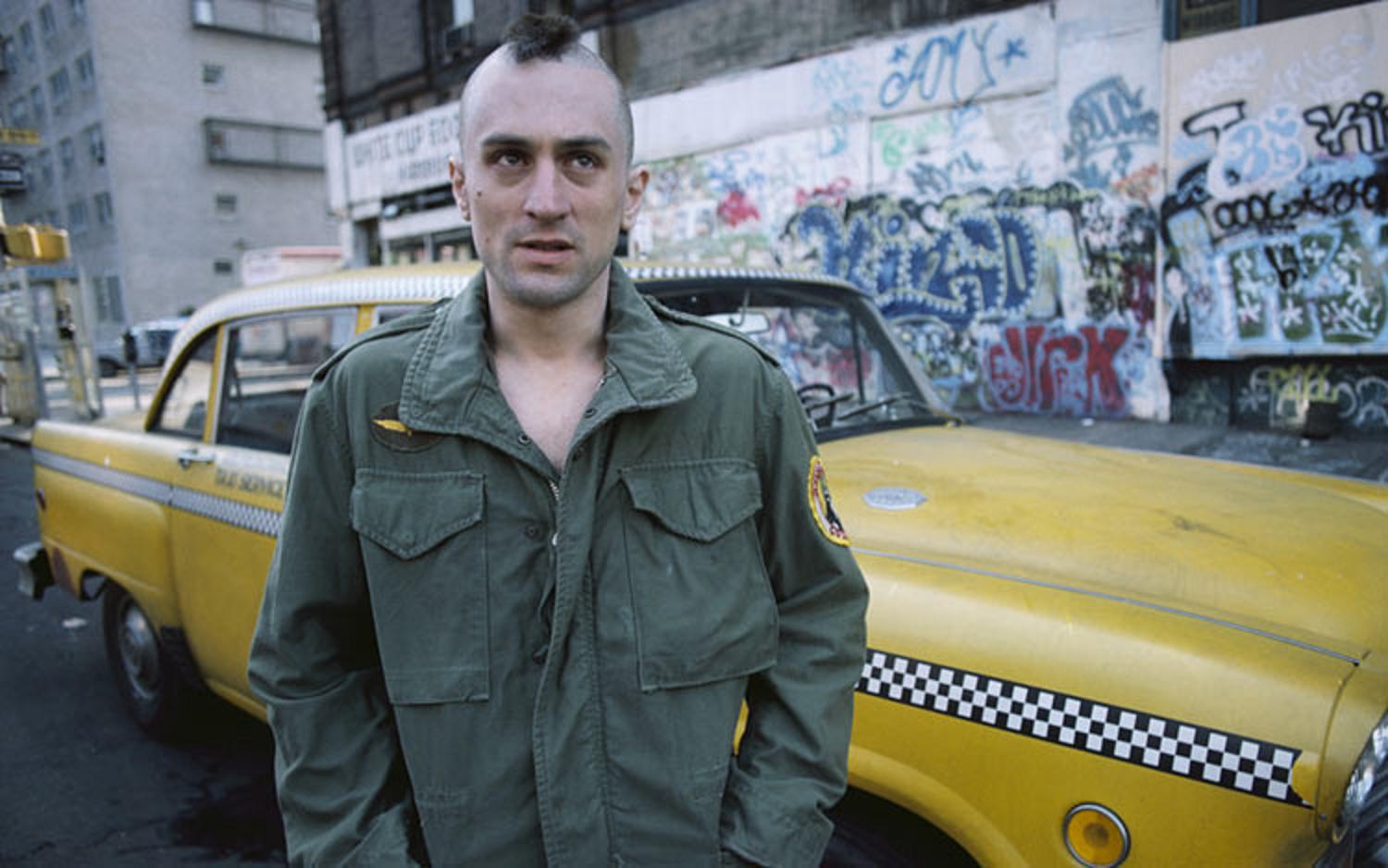← Back to Reviews
in

Taxi Driver is one of the most ambiguous movies of all time. Martin Scorsese's career, despite previous critically acclaimed films, didn't truly kick off until this gem was released. With zero anticipation on Scorsese's part of Taxi Driver being a phenomenon of any kind - though he certainly wanted to be noticed as a director - the film hit theaters in February of 1976, far from awards season. But the film didn't come and go. It has stayed alive for the past 40 years.
Though Taxi Driver is considered a classic by many, it will mean something different to each viewer. The symbolism is there, but depending on how you view the film's final minutes, and Travis' slowly degrading narration, things will either seem like a complex character study or a simple, no-holds-barred decent into madness. Or both. Some people see it as a careful examination of the heroes our society praises, how people are driven to the brink of insanity, or a soapbox story of everything that is wrong with culture.
Taxi Driver is full of, if anything, uncertainties. The characters' motivations and thoughts are foggy and there are no clear identifiable goals in this film. When has this ever worked? Rarely, almost never. But Martin Scorsese is able to pull it off. A major plot point in Taxi Driver is Travis attempting to help a prostitute. It's clear that Travis wants her to change, and is willing to help her, but exactly how this will be addressed remains a mystery until Travis' mental state comes full circle.
One of the things I love about Taxi Driver is Martin Scorsese's ability to cloud good and evil. Throughout the film, there is a gray area that many of the characters walk into, and they remain there until the end. Especially in the case of Travis. Is Travis doing the right thing? If not, what should he do? There are so many questions but one can only simply watch the events unfold on screen and try to decipher what is arguably Scorsese's most complex, yet somehow simple-minded story of a man and his troubles.
The mystery of Taxi Driver is figuring out exactly who Travis is. Perhaps the most unreadable character in the history of film, Travis is portrayed by Robert De Niro to perfection, and he's surrounded by an excellent supporting cast featuring the likes of Jodie Foster, Albert Brooks, Harvey Keitel, Leonard Harris, Peter Boyle, and Cybill Shepherd. First-time viewers have just about as much to gain as those seeing Taxi Driver for the umpteenth time. There's always something new to interpret about Travis and who he is as a person, so it's always interesting to observe what drives him to act the way he does throughout the film.
Taxi Driver (1976)
Director: Martin Scorsese
Starring: Robert De Niro, Jodie Foster, Albert Brooks
Director: Martin Scorsese
Starring: Robert De Niro, Jodie Foster, Albert Brooks

Taxi Driver is one of the most ambiguous movies of all time. Martin Scorsese's career, despite previous critically acclaimed films, didn't truly kick off until this gem was released. With zero anticipation on Scorsese's part of Taxi Driver being a phenomenon of any kind - though he certainly wanted to be noticed as a director - the film hit theaters in February of 1976, far from awards season. But the film didn't come and go. It has stayed alive for the past 40 years.
Though Taxi Driver is considered a classic by many, it will mean something different to each viewer. The symbolism is there, but depending on how you view the film's final minutes, and Travis' slowly degrading narration, things will either seem like a complex character study or a simple, no-holds-barred decent into madness. Or both. Some people see it as a careful examination of the heroes our society praises, how people are driven to the brink of insanity, or a soapbox story of everything that is wrong with culture.
Taxi Driver is full of, if anything, uncertainties. The characters' motivations and thoughts are foggy and there are no clear identifiable goals in this film. When has this ever worked? Rarely, almost never. But Martin Scorsese is able to pull it off. A major plot point in Taxi Driver is Travis attempting to help a prostitute. It's clear that Travis wants her to change, and is willing to help her, but exactly how this will be addressed remains a mystery until Travis' mental state comes full circle.
One of the things I love about Taxi Driver is Martin Scorsese's ability to cloud good and evil. Throughout the film, there is a gray area that many of the characters walk into, and they remain there until the end. Especially in the case of Travis. Is Travis doing the right thing? If not, what should he do? There are so many questions but one can only simply watch the events unfold on screen and try to decipher what is arguably Scorsese's most complex, yet somehow simple-minded story of a man and his troubles.
The mystery of Taxi Driver is figuring out exactly who Travis is. Perhaps the most unreadable character in the history of film, Travis is portrayed by Robert De Niro to perfection, and he's surrounded by an excellent supporting cast featuring the likes of Jodie Foster, Albert Brooks, Harvey Keitel, Leonard Harris, Peter Boyle, and Cybill Shepherd. First-time viewers have just about as much to gain as those seeing Taxi Driver for the umpteenth time. There's always something new to interpret about Travis and who he is as a person, so it's always interesting to observe what drives him to act the way he does throughout the film.
